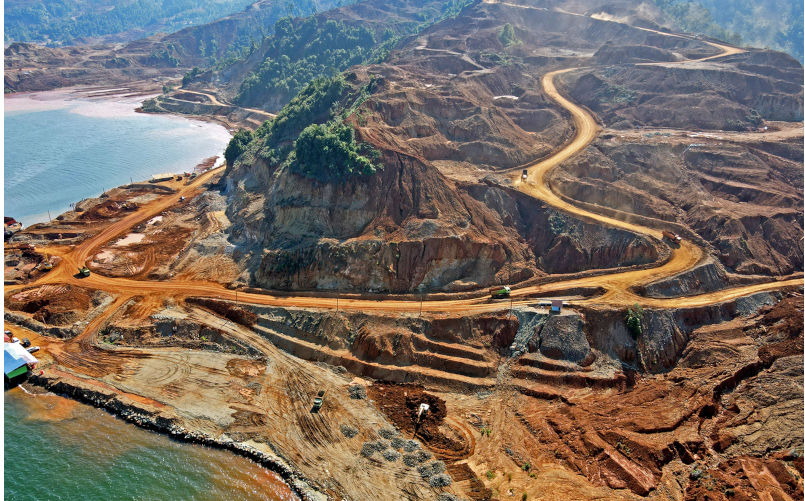Indonesia's nickel supremacy: China's backing and Australia's decline
February 18, 2024
Australia is no longer competitive in the nickel market, largely due to Indonesias recent domination in the sector. This domination strategy has been carefully planned by Indonesia as it looks to boost its downstream industrial policy in critical minerals processing with the backing of Chinese investments.
Since 2014, there has been strategic planning by Jakarta in how it would onshore the added value of nickel supply chains. It started with Indonesiabanning nickel exportsthat year, which immediately withdrew a large proportion of nickel from the global supply chain. Unsurprisingly, this export ban was met with international criticism, with theEU complainingto the World Trade Organization (WTO) about this policy, considering it an anti-competitivetrade-restrictingmeasure. While the WTO ruled against Indonesia, finding that it could not demonstrate an imminent critical shortage of nickel for its domestic market, Jakarta has since appealed against this ruling.
Indonesia has argued that this is a case of protecting its national economic interests, and that global trading rules are unfairly detrimental to developing nations. The Indonesian Coordinating Minister for Economic Affairs, Airlangga Hartarto, called them a form of economic imperialism when the International Monetary Fund (IMF) called for Jakarta to scale back its export ban.
Along with this controversial ban, the support of Chinese foreign direct investment (FDI), as well as concessional financing, helped Indonesia secure its place as the worlds top refined nickel producer. Chinese policy lending banks and state-owned enterprises started investing early. One of the largest Chinese investment projects in Indonesia, the Sulawesi-basedMorowali Industrial Park, set up in 2013, and was funded by the Chinese Development Bank, China Export-Import Bank, Industrial and Commercial Bank, and Chinas stainless steel giant Tsingshan Holdings. This helps Indonesia diversify its nickel production, especially as it looks to manufacture electric vehicles (EVs) and solidify its presence in the global supply and value chain.
China also financed supporting infrastructure needed for nickel processing. Manycoal fired power plants, on which nickel smelting depends, were set up in Indonesia through Chinas Belt and Road Initiative (BRI).
This downstream industrial policy reform in Indonesia has mostly been a success, making it the worlds largest nickel producer. But the most significant achievement is that it now produces processed nickel, which adds value to its exports. Before the ban, Indonesia only supplied raw nickel ore, valued at US$6 billionin 2013. By 2022 this figure increased to US$30 billion, due to refinement.
Additionally, this policy was aimed at attracting manufacturers of EV batteries, which has also been achieved. European companies, such asBASFand Eramet, are looking to invest, as are South KoreasHyundaiand LG. Overall, Indonesias nickel bet has paid off.
Nonetheless, there are some environmental and social concerns despite these successes. Counterintuitive as it may seem, Indonesias transition to clean energy (through EV battery manufacturing) is burning morefossil fuelsas coal-fired power plants are employed to smelt nickel. Furthermore, these newly built power plants are mostly financed by China. This raises questions about the costs of the energy transition, not just for developing countries but also for developed countries.
From a broader relational angle, Indonesias success has been Australiasloss. Its alleged flooding of the nickel market has resulted in Australian nickel mine closures, adding to further challenges in the global slump in demand for critical minerals, with lithium now also facing a loss in value. US lithium giants like Albamarle, for instance, have cancelled plans to invest in Australia as they scale back production.
For Indonesia, its two-pronged strategy of changing its industrial and trade policy, despite international backlash and economic partnership with China, has helped it take advantage of its market power. In Australia, Nickel has been excluded fromAustralias critical minerals list, and is now not viewed as advantageous for Australia miners (while it remains on theUS critical minerals list). On this, Canberra is relying heavily on the US should there be supply chain issues with nickel. This reliance questions the Albanese governmentscritical minerals boostpolicy that is intended to enable Australias transition to clean energy.
Furthermore, the job losses resulting from the loss of competitive edge in the nickel market will undoubtedly have domestic impacts. These challenges will mainly result in rising unemployment in the mining sector which will be particularly acute in Western Australia where most of these mines are. Regional towns in Australia, likeHopetounwhere 30 percent of the jobs are being cut, are facing greater uncertainty and are likely to put pressure on the Albanese government to do more to protect mining, particularly in nickel.
These impacts highlight the significant financial concerns for the Australian mining economy which have become more volatile as international markets face new pressures and challenges.
In the short term, at least, the China-Indonesia economic partnership has proven beneficial, not just for Indonesias nickel sector, but also in securing intra-regionalconnectivity. For Indonesias president Joko Widodo, who oversaw most of this policy change, these economic partnerships undoubtedly help cement his legacy. For Australia, it is now a time to diversify its critical minerals strategy and re-think its critical mineral partnerships.
Republished from the Australian Institute of International Affairs, February 16, 2024
